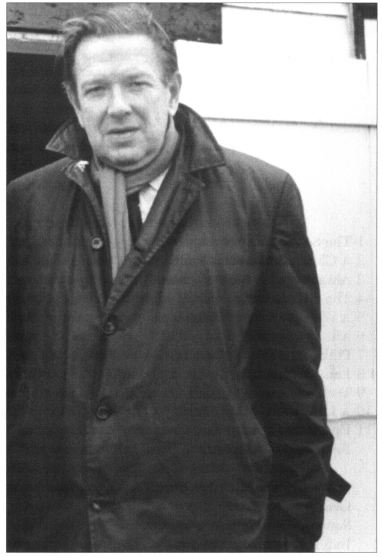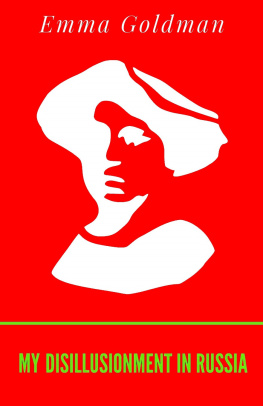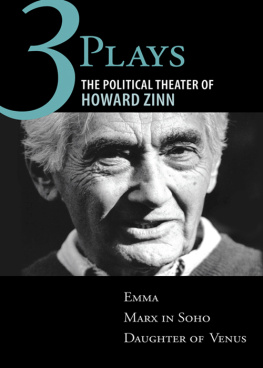Michelle Labrèche-Larouche - Emma Albani
Here you can read online Michelle Labrèche-Larouche - Emma Albani full text of the book (entire story) in english for free. Download pdf and epub, get meaning, cover and reviews about this ebook. year: 2001, publisher: Dundurn, genre: Detective and thriller. Description of the work, (preface) as well as reviews are available. Best literature library LitArk.com created for fans of good reading and offers a wide selection of genres:
Romance novel
Science fiction
Adventure
Detective
Science
History
Home and family
Prose
Art
Politics
Computer
Non-fiction
Religion
Business
Children
Humor
Choose a favorite category and find really read worthwhile books. Enjoy immersion in the world of imagination, feel the emotions of the characters or learn something new for yourself, make an fascinating discovery.
- Book:Emma Albani
- Author:
- Publisher:Dundurn
- Genre:
- Year:2001
- Rating:4 / 5
- Favourites:Add to favourites
- Your mark:
- 80
- 1
- 2
- 3
- 4
- 5
Emma Albani: summary, description and annotation
We offer to read an annotation, description, summary or preface (depends on what the author of the book "Emma Albani" wrote himself). If you haven't found the necessary information about the book — write in the comments, we will try to find it.
Emma Albani — read online for free the complete book (whole text) full work
Below is the text of the book, divided by pages. System saving the place of the last page read, allows you to conveniently read the book "Emma Albani" online for free, without having to search again every time where you left off. Put a bookmark, and you can go to the page where you finished reading at any time.
Font size:
Interval:
Bookmark:

George Grant, 1971.
Never go into a class without thinking that there is somebody in
the classroom who has a greater intelligence and a nobler heart
than yourself. I mean if you dont like the young, for Gods sake
dont be paid a lot of money to teach them.
The Sound of a Siren

T he siren wails. Its very loud, difficult to ignore. The sound it makes is meant to awake and alarm and frighten people out of their normal routines and get them to take shelter in basements or, at least, under tables. Its wail is a warning that ICBMs Intercontinental Ballistic Missiles carrying nuclear warheads might just be on the way across the North Pole to attack and destroy major cities in North America. Thousands of such sirens are set up on public buildings from Newfoundland to Vancouver Island as part of Canadas Civil Defence System. This particular one is mounted on the roof of a primary school on the edge of Hamilton at the head of Lake Ontario in the middle of Canadas industrial heartland. And inside its classrooms, teachers have said, Children, you know what you are supposed to do. Get under your desks, put your knees up, fold your arms over your knees, put your heads down on your arms, close your eyes. No peeking!
Miss! Miss!
Yes?
Is this a real air raid or just a pretend one?
Miss! Miss!
Well know in a few minutes! Just keep your eyes closed!
On this sunny morning in May, its a false alarm. The year is 1967 Canadas Centennial Year and there have been so many false alarms over the past few years that most people who hear it in the west end of Hamilton dont take it very seriously. Indeed, for many Canadians the sound of the air raid sirens has become a joke a very sick joke. Less than five years earlier, in October 1962, the Soviet Union began placing missiles in Cuba so that they would not have so far to travel to bomb North American cities. The confrontation between the United States and the Soviet Union over these missiles and their nuclear warheads was the closest the two countries came to starting a Third World War. The fate of millions literally hinged upon the ability of two men, President John F. Kennedy and Premier Nikita Khrushchev, to reach a compromise. Until they did, the world was gripped by the Cuban Missile Crisis, which extended from October 1829 but had a longlasting impact.
Everyone who lived through those days and paid attention to what the television commentators were saying learned that there were no safe places to shelter and hide. A nuclear war would kill most of us either immediately from the blast or slowly through radiation poisoning. Only those sheltered far beneath the surface of the earth in government-built bunkers would be completely protected. That was something that a lot of people who werent schoolchildren wanted to shut their eyes to, ignore, and simply not think about. Within only a couple of years of the Crisis, many more preferred to think about smaller events, more easily comprehended things, like where they were on the day John F. Kennedy was assassinated. What they had felt on the days when President Kennedy just about got everybody killed was far too painful to remember. But there are exceptions. There are people who keep their eyes wide open and think about what is happening to them and the world around them no matter how hard it is to look an enemy in the face and how much easier it is to escape into television movies.

As he drives by the school where the siren is ringing on this day in 1967, George Grant is on his way from his home in the small town of Dundas to meet a young man who has made an appointment to see him at his office. George Grant is chairman of the department of religion at McMaster University in Hamilton. University professors have a reputation especially among small-town people for being eccentric, otherworldly and absent-minded. Theres much in George Grant that reinforces this impression in his neighbours. The house he lives in with his wife and six children at 80 South Street is a large brick house on a five-acre lot, but its not a suburban estate. The house is more than a hundred years old, has high ceilings and spacious rooms. Before the Grants bought it, it had been owned by the Anglican Church of Canada, and theyd allowed it fall into disrepair. As Georges wife Sheila put it, This house would be pretentious if it wasnt so run down. Their automobile is slightly pretentious for a family man. When his mother died and he inherited a bit of money, George bought a dark-blue Chevrolet convertible, a car more suited to a California surfer than a Canadian academic with a handful of children. Its slightly run down now but thoroughly reliable. Reliability is important to him. Professor Grant is not in the least absent-minded when it comes to keeping appointments. Hes always on time, so punctual that he makes students afraid of being late for classes and appointments. They do not want to annoy him. Some of them fear his sharp tongue, but many more feel so very privileged to study with him that they dont want any classroom time to be lost or wasted. George Grant is neither rich nor powerful, but he has become famous as a man who is willing to think thoughts that fly in the face of popular opinion. He has written a book about the ways in which Canada surrendered its independence to America during the Cold War Lament for a Nation which has made him a hero to many university students from one end of the country to the other, and he is now writing another Technology & Empire which will teach them how to think for themselves. He is also a fierce pacifist, a very outspoken critic of American involvement in Vietnams civil war.

George Grant has heard the sound of air raid sirens many, many times. Only a few were false alarms. When he was a twenty-two-year-old university student in England, hed volunteered for civil defence work and gone to live in the southeast end of London near the warehouses and loading docks. That was in the autumn of 1940 and the early months of 1941 during the worst days of the Blitz, the period when the Luftwaffe the German air force was trying to bomb England into submission to the Third Reich. George had sailed to England a year earlier after hed been awarded a Rhodes Scholarship to study law at Oxford University. When war broke out, he could have returned home to Toronto but he took first aid and ambulance training and then volunteered to serve as an Air Raid Precautions warden in one of the most dangerous sections of London. As an air raid warden, it had been his unpaid job to help people get settled under the brick arches of the railway bridges that served as air raid shelters for the poorest Londoners. Then, when the bombs hit, it was his job to put out small blazes set by fire bombs, summon emergency services, rescue people trapped in bombed buildings, provide first aid to the injured, and investigate unexploded bombs. Watching over the bombs with delayed action fuses that hadnt yet gone off was the most dangerous part of his job because he had to guard them until the bomb disposal crews arrived.
Memories of that time crowd in on him at the sound of this siren. He can never forget the children. Hes a family man and his six children are an important part of his life. Like any parent his youngest is eight years old, his eldest is nineteen he feels the chill of fear. Today, it almost freezes him to the steering wheel. His son Robert, his third child, will turn fifteen in just a few days. When George was living in London, one of the things hed done was to organize a boxing club for adolescent boys in the Bermondsley district, and the twelve- to fourteen-year-olds were the most eager to join. Their faces are frozen in time. Most of them died in a single bomb blast. Authorities had urged poor people to accept the shelter offered by the arches of railway bridges. They said arches were as safe as underground. They were trying to keep people in their own neighbourhoods and from overcrowding the London subway system. George had been required to organize such shelters for some of the people in his district. The one at Stayners Street took a direct hit from a bomb. It wasnt safe and the government had known it wasnt safe. Three hundred people the people George knew best and had worked with most closely all died. Among them was a young woman who meant a great deal to him. He had been with her and the rest of them in the shelter and then hed had to go out and when he came back, the arch was flattened and they were dead. Or horribly injured. It had almost destroyed his sanity.
Font size:
Interval:
Bookmark:
Similar books «Emma Albani»
Look at similar books to Emma Albani. We have selected literature similar in name and meaning in the hope of providing readers with more options to find new, interesting, not yet read works.
Discussion, reviews of the book Emma Albani and just readers' own opinions. Leave your comments, write what you think about the work, its meaning or the main characters. Specify what exactly you liked and what you didn't like, and why you think so.








